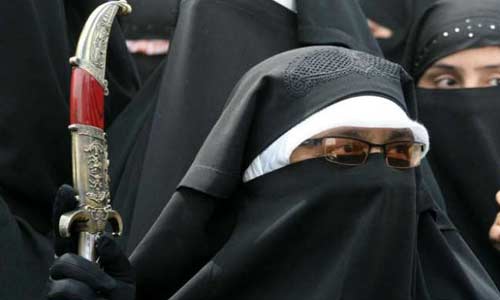
Srinagar, Jammu Kashmir, 1 Sya’ban 1438/8 April 2017 (MINA) –Indian police arrested a woman separatist leader as India intensifies crackdown on resistance voices in the disputed Jammu Kashmir.
Also Read: New Delhi Covered in Toxic Smog: Residents Say ‘We Can Hardly Breathe’
“Syedah Aasiyeh Andrabi and Sofi Fahmeeda were arrested last night (Wednesday) at 11.30 p.m. (1800GMT) from her (Andrabi’s) residence in Srinagar,” their organization Dukhtaran-e-Millat (DeM) confirmed.
According to the Indian police in the region, Aasiyeh — the founder and the chairperson of DeM — was arrested for her possible role in the pro-Independence demonstrations by girl students in Srinagar, the capital city of the Jammu Kashmir, last week.
Scores of girls had taken to the streets in Srinagar to protest against the Indian rule in the region, a day after Indian forces entered Pulwama degree college in southern Kashmir and beat up the students.
Soon after the videos of the beating went viral, students across Kashmir came out in protests, raising slogans for independence.
Also Read: Boat Carrying 100 Rohingya Migrants Capsizes in Malaysian Waters
“We believe that she (Aasiyeh) is trying to incite the already angry girl students in schools and colleges and that is why she has been arrested,” a senior police official told Anadolu Agency on condition of anonymity because he was not authorized to speak to the media.
While Kashmiri men throwing stones at the Indian forces had, over the past eight years, become the emblem of Kashmir’s resistance against the Indian rule, during the past week, the Kashmiri girls with the stones have become a new symbol.
“We were just angry and we wanted to carry out a peaceful demonstration against the Indian rule. But the Indian forces slapped some of us, abused us and used tear smoke shells.…then we fought back with stones,” said one of the girls, who participated in demonstrations last week, on the condition of anonymity for safety reasons.
Bloking internet services and other social media tools
Also Read: Dozens Killed in RSF Drone Strike on Sudanese Village During Funeral
Aasiyeh’s arrest came on the same day when formal orders were passed by the Indian authorities for banning all social media sites in Kashmir that has been teeming with pro-Independence demonstrations over the past month.
Meanwhile, Pakistan has condemned the arrest of Aasiyeh and other Kashmiri leaders.
“Hurriyat (All parties Hurriyat Conference) leaders, Syed Ali Geelani, Mirwaiz Umar Farooq, Yasin Malik and Aasiyeh Andrabi remain either under arbitrary arrest or illegal detention. We deplore inhuman treatment meted out to Kashmiri leaders”, Pakistan’s Foreign Ministry said a statement on Thursday.
The foreign office also lashed out at New Delhi for blocking internet service and other social media tools in the held valley.
Also Read: International Red Cross Calls for Safe Corridors for Civilians in Sudan
“To hide grave human rights violations and crimes against humanity, Indian occupation forces have imposed a ban on Internet services in occupied Kashmir. No amount of brute and lethal force could deter these girls”, it added.
Born in 1963, she joined the religious and political organization, Jamaat-e-Islami, and later in 1985 formed her own party.
In 1990, she married Ashiq Hussain Faktoo, a top militant commander during Kashmir’s first days of resistance movement against the Indian rule. Faktoo is serving life imprisonment since 1993 for his “involvement” in the killing of human rights activist HN Wanchoo.
Aasiyeh was arrested by the Indian government for the first time along with her husband and infant child in 1993 for 13 months. Since then, she has been to prison several times.
Also Read: M6.3 Earthquake in Afghanistan Kills 19 People
Her name, however, became a household name in Kashmir in 1991 when she passed a decree asking all the women in Kashmir to wear a veil.
“She has no influence on women in Kashmir. She is running a very rigid organization and has absolutely no business to intrude in people’s personal lives and choices,” said Riifat Mohidin, a 24-year-old Kashmiri woman journalist, who often writes about gender and politics.
“She is mixing our desire for Kashmir’s Independence with her narrow vision of Islam and that is why she has no real presence on the ground,” she added.
Kashmir, a Muslim-majority Himalayan region, is held by India and Pakistan in parts and claimed by both in full. A small sliver of Kashmir is also held by China.
Also Read: 6.3-Magnitude Earthquake Strikes Northern Afghanistan
The two countries have fought three wars – in 1948, 1965 and 1971 – since they were partitioned in 1947, two of which were fought over Kashmir.
Kashmiri resistance groups in Jammu Kashmir have been fighting against Indian rule for independence, or for unification with neighboring Pakistan.
More than 70,000 people have reportedly been killed in the conflict since 1989. India maintains more than half a million troops in the disputed region. (T/RS5/RS1)
Mi’raj Islamic News Agency (MINA)
Also Read: Saudi Arabia Reduces Umrah Visa Validity to 30 Days











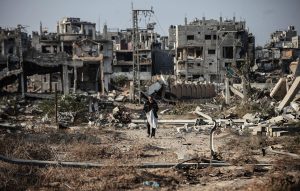
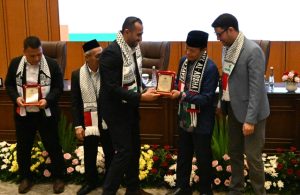
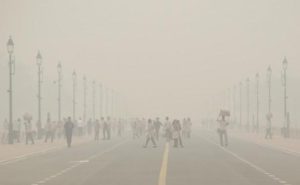
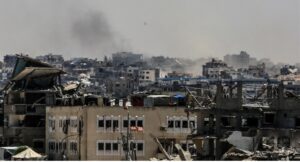
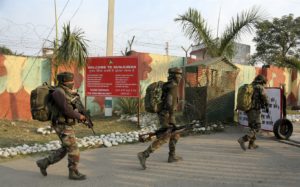
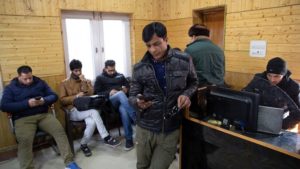
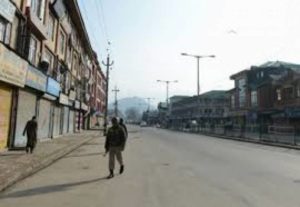
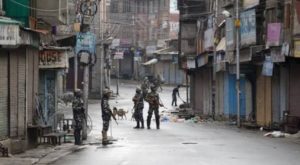




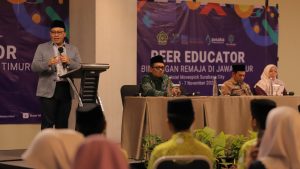

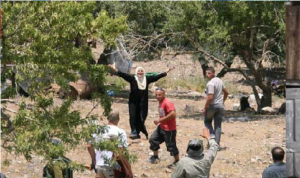


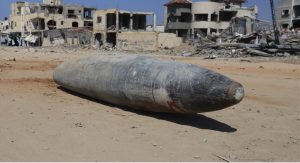

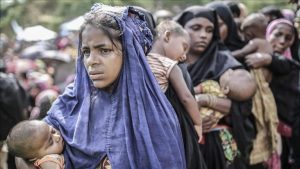
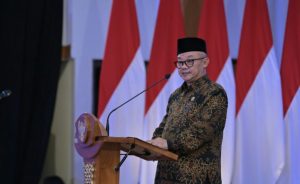



 Mina Indonesia
Mina Indonesia Mina Arabic
Mina Arabic